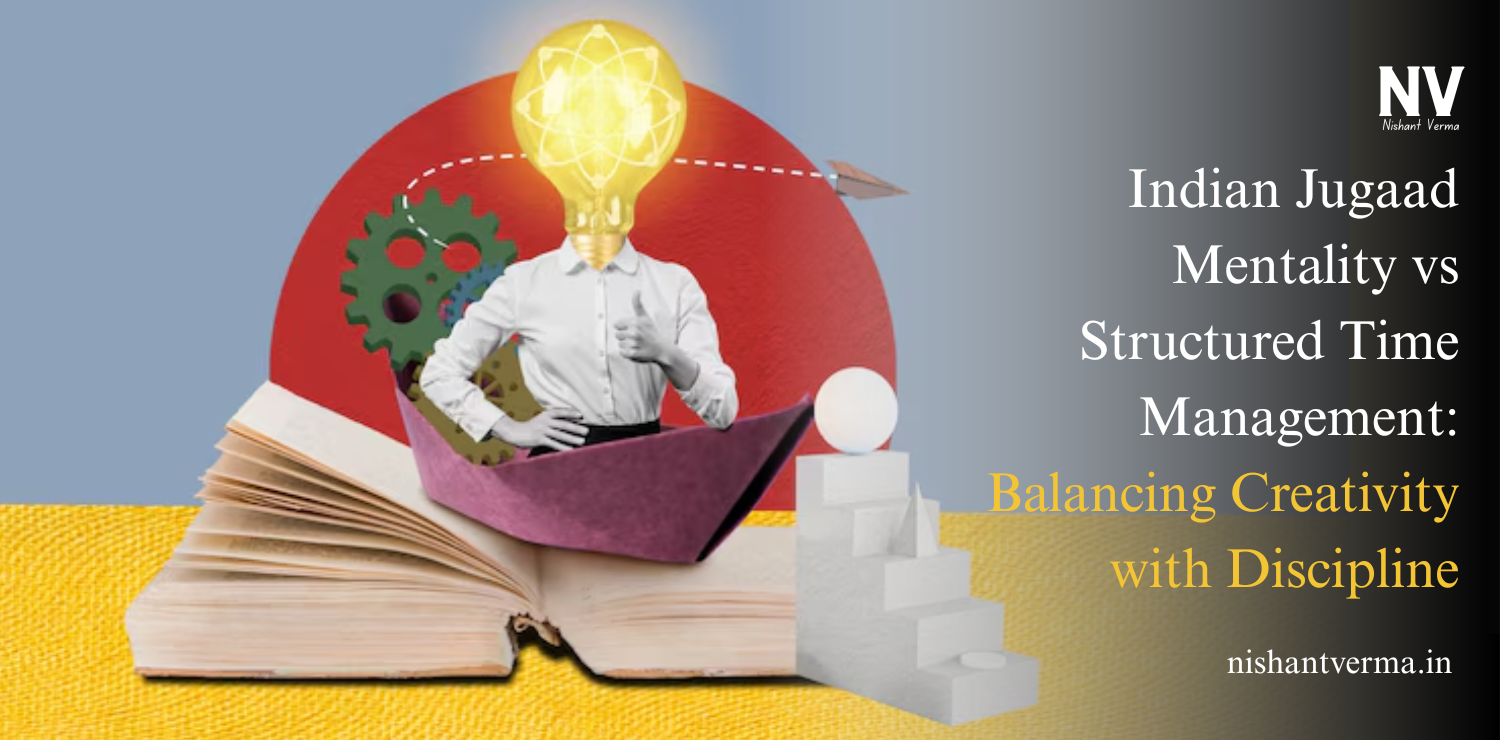Time is one of the most precious resources we have, yet managing it wisely is something many of us struggle with. In Indian culture, time has always been a subject of great importance, whether in spiritual practices, daily routines, or festivals. However, when it comes to modern-day time management, there are many myths and misconceptions rooted in traditional beliefs and habits. Let’s explore the reality of time management in Indian culture, clear some common myths, and understand how we can adopt better practices to make our lives more productive and balanced.
The Myth of “Indian Stretchable Time”
One of the most popular and often joked-about concepts is the term “Indian Stretchable Time” or IST. It is a play on the official Indian Standard Time, but in reality, it means people being habitually late. Be it weddings, meetings, or social gatherings, there’s a general acceptance that everything will start late. Some people even say, “If it’s scheduled for 5 PM, reach by 6 PM.”
This laid-back attitude has become a stereotype, but it affects our professionalism and efficiency in many areas of life. While being flexible is a cultural strength, constantly delaying things creates a bad impression, especially in workplaces and international dealings. In truth, punctuality is not against Indian culture—it is deeply embedded in our scriptures and traditions.
Ancient Indian texts like the Bhagavad Gita and Upanishads speak about the importance of doing one’s duty on time. Even in Ayurveda and yoga, timing is everything—whether it’s about eating, sleeping, or exercising. So the idea that being late is part of Indian culture is just a myth.
Religious and Traditional Influence on Time
Indian culture gives huge importance to “muhurat” or auspicious time. Before starting anything new—be it a marriage, business, or even buying a vehicle—people consult a priest or astrologer to find the right time. This shows that we do respect time, but sometimes this can lead to delays if the perfect muhurat is far away.
While respecting religious sentiments is important, we must not let it become an excuse for procrastination. In today’s fast-paced world, waiting too long for the “perfect time” can make us miss opportunities. We need to find a balance between tradition and practicality.
If a task needs to be done urgently, it’s better to go ahead with it instead of waiting for a muhurat that’s weeks away. Our ancestors never meant for us to stop living life while waiting—they believed in planning ahead. That’s the real spirit behind choosing the right time.

The Reality of Indian Work Culture and Time Management
In many Indian homes and offices, multitasking is considered a skill. Doing several things at once may seem efficient, but in reality, it often reduces quality and increases stress. Poor time management can be seen in missed deadlines, last-minute rushes, and poor work-life balance.
In traditional Indian households, there is often a lack of clear division between personal time and work time. Especially with the rise of work-from-home culture, many people find it hard to manage boundaries. Women, in particular, face more pressure, as they are expected to balance office work, household chores, and family responsibilities.
The good news is that with awareness and better habits, we can improve this situation. Indian professionals are among the most hardworking in the world. The issue is not a lack of capability, but lack of planning and discipline in managing time.
Common Myths About Time in Indian Society
There are several myths around time in Indian society that hold people back. Here are a few:
- “I work better under pressure.” Many people think that they are more productive when they do things at the last minute. While some people can manage this occasionally, it is not a healthy long-term habit. It leads to stress, poor quality work, and health issues.
- “I don’t have enough time.” Everyone has 24 hours in a day. The problem is usually not the amount of time, but how we use it. Prioritizing tasks, reducing distractions, and focusing on what’s important can free up a lot of time.
- “Time management is only for professionals.” This is completely untrue. Time management is for students, homemakers, elders, and everyone else. Even simple routines like sleeping and waking up on time, planning meals, and keeping track of bills need time management.
- “Being busy means being productive.” Just because someone is always busy doesn’t mean they are getting meaningful work done. Real productivity is about completing important tasks with focus and quality, not just being occupied.

Practical Time Management Tips for Indian Lifestyle
Understanding the myths is one thing. Taking action is another. Here are some simple and practical tips tailored to the Indian way of life:
- Start your day early This is an old Indian value that still holds true. Waking up early gives you a head start, peaceful environment, and more control over your time.
- Follow a daily routine Try to create a basic daily schedule for your tasks, meals, and breaks. This helps in building consistency and reducing mental clutter.
- Use technology wisely Instead of wasting time scrolling through social media or chatting, use apps that help you track your tasks, set reminders, or organize your calendar.
- Learn to say no In Indian culture, we often hesitate to refuse people. This leads to over-commitment and stress. It’s okay to say no when your time is limited.
- Delegate household work In joint families or even nuclear ones, distributing responsibilities among all members, including children, can save time and teach discipline.
- Take regular breaks Don’t think of breaks as wasting time. Short breaks between work can refresh your mind and improve overall productivity.

Time and Spirituality: A Forgotten Connection
Indian philosophy teaches us that time is not just something to manage—it is something sacred. Many spiritual teachings emphasize living in the present moment. The idea of “karma” is also closely tied to how and when we act.
Meditation and mindfulness, both rooted in Indian tradition, are powerful tools for focusing the mind and managing time better. When we are aware of how we spend each moment, we naturally become more productive and less stressed.
Even our festivals, which are spread across the year, were designed to give people time to rest, celebrate, and reset their lives. Understanding this deeper connection with time can inspire us to use it more respectfully and meaningfully.
Conclusion: Breaking Myths and Building Better Habits
Time management is not something foreign to Indian culture—it has always been a part of it. The problem lies in how modern lifestyles have disconnected us from those values. Myths like “being late is normal” or “I don’t have time” can be broken by small changes in daily habits.
India is a land of wisdom and discipline. By combining our ancient knowledge with modern tools, we can master the art of managing time. It’s not about rushing through life, but about making time for what truly matters—family, growth, health, and inner peace.
So, whether you are a student, a working professional, a homemaker, or a senior citizen, time is your most valuable asset. Start respecting it, and you’ll see the positive changes unfold in every area of your life.




